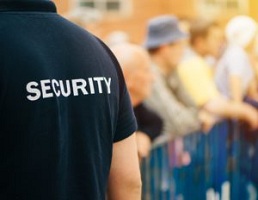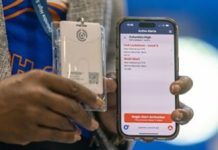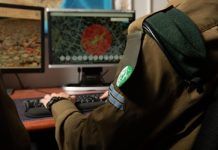A new study conducted in May this year of over 1000 security professionals from Workingthedoors.co.uk has revealed the levels of verbal and physical violence security staff receive while at work. The research, led by the Working the Doors team – a dedicated blog for frontline security staff – has highlighted the levels of abuse security staff face on a day-to-day basis. The study, which was supported by many across the security industry including IFSEC Global, aimed to highlight the violence that many in the sector face and the impact this is having on the individuals involved.
Security guards, door supervisors, retail guards and close protection officers protect thousands of organisations across a plethora of industries, such as shopping areas and transport hubs, night-time and entertainment venues and important infrastructure such as government buildings, courts and airports. As well as this, their role often fills the gaps left from the police cuts including work as street marshalls and street wardens.
Clearly, the abuse professionals are receiving is having a fundamental effect on those that are employed to look after and protect people in society, with 48% saying that they have had a flashback/nightmare about a specific incident and 57% say that an incident has affected their mental state more than 24 hours after the event. While it is difficult to say with full certainty that professionals are experiencing PTSD, Working the Doors notes that many are suffering from common symptoms, with a worrying lack of support available – or at least deemed to be available.
Well-regarded industry professionals commented on the findings. Rick Mounfield, Chief Executive Mike Hurst, Director of IFPO UK and Ireland, added: “Any violence against frontline security is unacceptable and the levels shown by this survey are shocking.”
“Apart from the obvious detrimental physical effects, aggression and violence aimed at security officers can often be a major cause of wellbeing and mental health issues. The IFPO is working hard to support the welfare of frontline security personnel with education and support.”
The report also explores the role technology and new techniques are playing in potentially reducing aggression against security staff. Some respondents highlighted the role body-worn cameras are playing, for example, noting that since using body-cams there was a “definite effect on decreasing the frequency of incidental violence”, and their effectiveness as a deterrent. Schemes such as Smart Tag and ‘Pubwatch’ are also discussed.
Since the reopening of pubs and clubs, a sector heavily impacted by the pandemic, roles and positions have been hard to fill, with many leaving the industry to find careers in other sectors with equivalent pay and less violent environments. The survey ran from 17th May to 16th June 2021, with all 1224 responses from UK-based security personnel who hold SIA licences.








